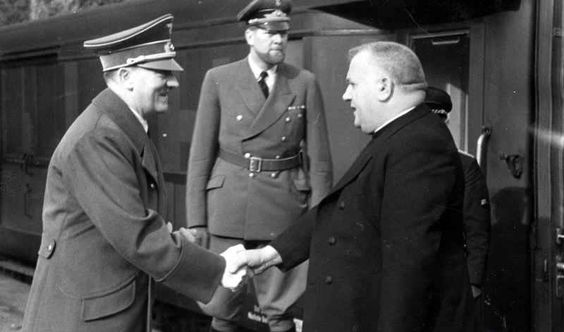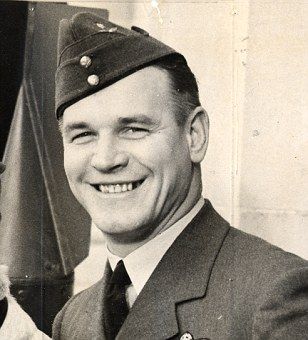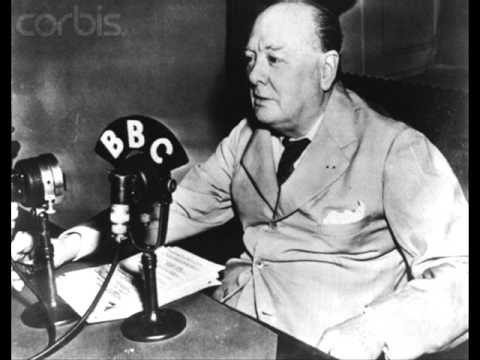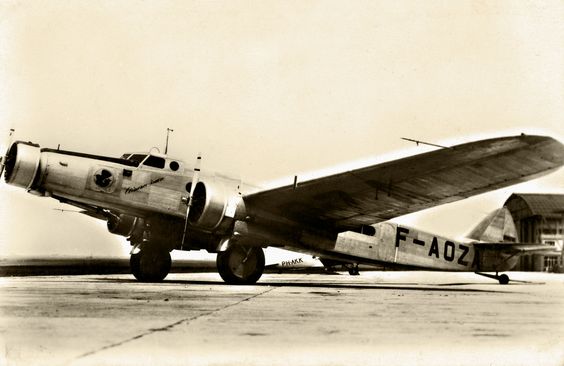Sunday 28 July 1940
 |
| Hitler greets Monsignor Tiso at Berchtesgaden, 28 July 1940. |
The Luftwaffe gets an early start that doesn't turn out well. At 05:00, the pilot of a Junkers Ju 88 of 3,/KG51 becomes disoriented and crash-lands at Bexhill, Sussex. At 05:25, Junkers Ju 88s cross the coast near Plymouth, losing one plane.
The Luftwaffe makes a more successful attack on Glasgow an hour later, bombing the Hillingdon district and causing casualties. An hour after that, at 07:30, another Junkers Ju 88 goes down while attacking shipping at Porthcawl. These piecemeal attacks are proving problematic for the attacking forces.
Around noontime, the real battle begins. Forty fighters of JG 26 and 51 assemble over Calais and cross over towards Dover, escorting 60 Heinkel He 111s. RAF Nos. 41, 74, 111 and 257 Squadrons rise to intercept. Hurricanes attacked the bombers, and Spitfires the fighters. The bombers immediately turn back to France as part of a pre-planned strategy, while the fighters mix it up. Losses are even, both sides losing five fighters.
Newcastle is bombed heavily during the day by 25 bombers, killing several female civilians.
The Luftwaffe steps up its attacks after dark, with intense minelaying in the Thames estuary. Small raids take place across southern England. Shortly before midnight, Heinkel He 111s of III,/KG55 bomb the Rolls Royce plant at Crewe in Cheshire, and also bomb Kent and Sussex. Later at night, the Sealand airfield, south Wales, railway tracks at Neath, and areas near Swansea are bombed.
The Luftwaffe continues shifting units toward England. III,/JG2 moves from Frankfurt-Rebstock to Evreux-West, and III,/JG77 leaves Berlin-Tempelhof for Wyk auf Föhr in the Frisian Islands.
The Royal Navy destroyers based at Dover are withdrawn to Portsmouth. This reduces convoy defense, antiaircraft defense at Dover, and also creates an opening for a possible invasion.
Overall, it is a mediocre day for the Luftwaffe, which is estimated to have lost around a dozen planes. However, driving the destroyers away from Dover is a major strategic victory - if it is followed up. Otherwise, it is a pointless and ephemeral victory, like gaining "control" over airspace that nobody else needs anyway.
A legend later grew that British pilot Adolph "Sailor" Malan, a British war hero from South Africa, was the one who wounded Werner Mölders. Malan claimed credit for the incident, but another Luftwaffe pilot who observed the incident thought another British pilot, a Lt. Webster, did the deed. There is no binding proof of who did what, but the odds are that Mölders probably was tangling with RAF No. 41 Squadron, not Malan who headed No. 74 Squadron.
As a general matter, and this applies to both sides, there often is a tendency to assign credit for celebrity shoot-downs to a popular pilot in order to create a propaganda "hero." Just as often, the celebrity victim may have been shot down by some no-name anti-aircraft gunner, a stray bullet, or some completely unknowable cause (see the Red Baron during World War I, for instance). Myth-building is common on both sides. In any event, in this incident, Mölders brought his Bf 109 back to base, so there was no victory, and Mölders returned to action after a month of convalescence.
Battle of the Atlantic: German raider Thor encounters a British armed merchant cruiser, HMS Alcantara, off southern Brazil near Trindade island. A battle quickly breaks out. It is a fairly evenly matched encounter. Thor hits the British ship with three shells and severely damages the Alcantara, forcing it to make port in Rio de Janeiro with 9 casualties. Thor takes two shells and also needs repairs.
U-99 (Kapitänleutnant Otto Kretschmer) torpedoes and sinks large 13,212-ton British freighter Auckland Star about 80 miles west of Ireland. All 47 crew survive by sailing their lifeboats to shore.
The Luftwaffe finds and sinks British freighter Orlock Head in the North Sea.
Norwegian freighter Argo hits a mine and sinks. The mine was laid by French submarine Rubis.
Italian submarines leave the Mediterranean for the first time and begin operating off the Azores.
Convoy OA 191 departs from Methil, Convoy SL 41F departs from Freetown.
 |
| Acting South African Flight Lieutenant Adolph "Sailor" Malan. |
Royal Navy cruisers HMS Neptune and Sydney intercept Italian tanker Ermioni near the Dodecanese Islands and sink it.
At Malta, Italian fighters jump a Short Sunderland flying boat that carries out reconnaissance over Sicily (it spots five flying boats at Augusta) and drops some bombs without causing any damage. The Italians quickly get fighters in the air which use the explosive ammunition previously identified from downed Regia Aeronautica planes, which may violate international law. The Sunderland sustains heavy damage and several of the crew are wounded, but it shoots down one or two of the attackers and returns to base under continued attack, barely making it.
There is only one air raid alert on Malta, shortly before noontime. Heavy anti-aircraft fire drives the bombers off before they drop their bombs, and the Italians lose one plane.
War Crimes: Pursuant to an Air Ministry directive of 14 July 1940, Hurricanes of RAF No. 111 Squadron find and down a Heinkel He 59 air rescue plane in the middle of the Channel off Boulogne. Later, the same Squadron shoots down another Heinkel He 59 nearby and strafes a third which is trying to rescue the crew of the first.
Incidents like this tend not to be mentioned in the history books touting the glorious, heroic RAF defense of England. However, pilots on both sides know exactly what is going on and vengeance is usually meted out at some point, if not immediately. The British rationale is that any German rescue plane near the British coastline is engaging in aerial reconnaissance and thus a fair target, but planes obviously trying to rescue downed pilots also are shot down indiscriminately. Hitler issues a statement calling the RAF pilots downing rescue planes "cold-blooded murders," which is not far from the truth even though the pilots are acting "under orders." There are many such murderers during wartime, it is a part of this war and any war.
 |
| Hotel Diner, 41 Federal Street, July 28, 1949, Worcester Massachusetts. Photograph by George Cocaine. |
German/Slovak Relations: At Berchtesgaden, Hitler meets with President (Monsignor) Jozef Tiso, Prime Minister Vojtech Tuka and Hlinka Guard leader Alexander Mach of the Slovak Republic in his continuing series of discussions with Germany's eastern neighbors. This is a pattern that continues throughout the war: Hitler will meet with his most important ally - Italy or Finland or whoever it is - and then hold subsequent meetings with other, lesser powers. It is an easy way to see who is at the top of his pecking order - and who is at the bottom.
Hitler broadly hints to the Slovak leaders that they have little choice if they wish to remain free. "Slovakia should adhere loyally and unequivocally to the German cause in her domestic politics," he says. The Slovaks agree to set up a German-style state that represses Jewish people.
Soviet/Afghanistan Relations: The two nations sign a commercial trade agreement.
US/Brazilian Relations: To promote inter-American relations, the US grants Brazil a $20 million loan that likely will never be repaid. Foreign Affairs Minister Osvaldo Aranha, a former Ambassador to the US, notes that "We should erect a statue to Hitler - he made the USA finally notice us." Aranha typically represents Brazil at pan-American conferences such as the recent Havana Conference and is a strong proponent of pan-Americanism.
German Government: Discussions take place within the German army about the plans for Operation Sea Lion, which is considered unrealistic as proposed by the Kriegsmarine.
Denmark: Art Nouveau artist Gerda Wegener passes away.
China: Japanese bombers make 100 sorties against Chungking, Chiang Kai-shek's capital, losing one bomber.
July 1940
July 1, 1940: Vichy France
July 2, 1940: Arandora Star
July 3, 1940: Operation Catapult at Mers El Kébir
July 4, 1940: Romania In Crisis
July 5, 1940: The Five Freedoms
July 6, 1940: Hitler's High Point
July 7 1940: Dakar And Ringo
July 8, 1940: Tea Rationing in England
July 9, 1940: Battle of Calabria
July 10, 1940: Battle of Britain Begins
July 11, 1940: "Nous, Philippe Petain"
July 12, 1940: Enter Laval
July 13, 1940: German Surface Raiders Attack!
July 14, 1940: Bastille/Mourning Day
July 15, 1940: Tallest Man Dies
July 16, 1940: Plans for Sea Lion
July 17, 1940: Burma Road Closed
July 18, 1940: FDR Runs Again
July 19, 1940: Last Appeal To Reason
July 20, 1940: First Night Fighter Victory
July 21, 1940: Soviets Absorb Baltic States
July 22, 1940: First RAF Night Fighter Victory
July 23, 1940: Invasion False Alarm
July 24, 1940: The Meknés Incident
July 25, 1940: Black Thursday for RAF
July 26, 1940: Capture The Duke?
July 27, 1940: What's Up, Doc?
July 28, 1940: Destroyers Pulled From Dover
July 29, 1940: Barbarossa On The Burner
July 30, 1940: Hitler Delays Sealion
July 31, 1940: Bloody Wednesday of Olkusz
2020









